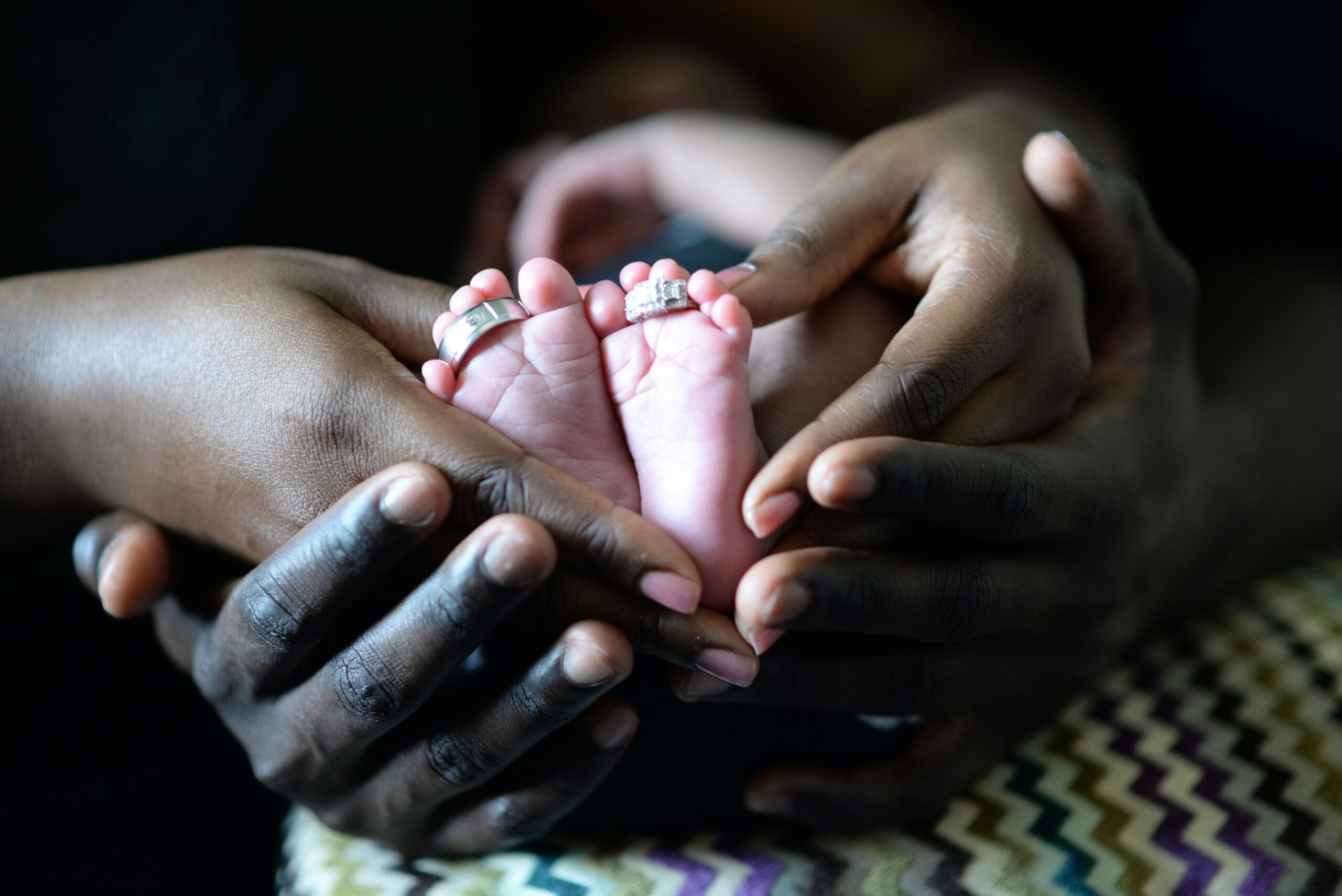Maternal Health and Reproductive Justice: Bridging the Gap
Maternal Health in Nigeria remains a major concern, as the country continues to be one of the most dangerous places to be pregnant, despite ongoing efforts to address the challenges. The World Health Organization (WHO) reports on “Trends in Maternal Mortality” released on April 7th 2025, is revealing to the extent that while global maternal mortality has significantly decreased, Nigeria continues to grapple with one of the highest maternal mortality rates worldwide. This persistent crisis is a reflection of existing systemic failures, gender inequities and a lack of reproductive justice that adversely affect health outcomes for women in Nigeria.
This article examines the intersection of maternal health and reproductive justice in Nigeria. Analysing the legal frameworks, persistent challenges, and solutions needed to ensure that no woman dies giving life.

The Crisis in Context
Nigeria’s maternal mortality ratio remains alarmingly high. The WHO’s 2025 Trends in Maternal Mortality Report indicates that a Nigerian woman has a 1 in 25 lifetime risk of dying from pregnancy-related complications. Hypertensive disorders, sepsis, and haemorrhage are leading causes of preventable maternal deaths in the country. The North-East region, plagued by conflict and displacement, suffers some of the worst outcomes, with women facing heightened risks due to destroyed health infrastructure.
Several factors contribute to Nigeria’s maternal health crisis. Limited access to healthcare is one of these factors. Despite considerable improvements in infrastructure, many regions, particularly rural and hard-to-reach areas, still lack access to essential maternal health services like antenatal care and emergency obstetric/gynaecology care. In addition, Nigeria’s health care system is often overstretched and underfunded. This is largely due to limited human resources, little or no uptake of health insurance and a lack of essential medications. Primary health care facilities (PHCs), which serve as the first contact between an individual and the health system, as well as one of the three gateways for implementing the BHCPF, face challenges that limit effective delivery of their services. Economic barriers also account for the country’s maternal health woes. Only 45% of women have access to financial services, limiting their ability to afford healthcare.
Many women opt for home births to avoid hospital fees, increasing the risks of maternal or infant death. Malnutrition is another contributory factor to the maternal health crisis in Nigeria, with anaemia affecting over 25-40% of pregnant women in Nigeria. Inadequate antenatal screening and iron-folic acid supplementation programmes worsen the condition. It is common knowledge that undernourished mothers are prone to infection, life-threatening complications, obstructed labour and would most likely have malnourished babies.
Related post: Nigeria’s Path to Vision 2030 on Female Genital Mutilation (FGM)
Legal Framework on Maternal Health in Nigeria
Interestingly, Nigeria is a signatory to several international treaties and agreements supporting maternal health. These key instruments include: the International Covenant on Economic, Social and Cultural Rights; the Convention on the Elimination of Discrimination against Women; and the Abuja Declaration. Some domestic laws supporting maternal health or having a bearing on it have been enacted in Nigeria, alongside policy instruments. They include: the National Health Act of 2014, the National Policy on Reproductive Health, the National Health Insurance Authority Act 2021, the National Policy on Female Genital Mutilation, the Violence against Persons’ Prohibition Act 2015, amongst others. The challenge, however, is with the implementation of these laws and policies. A significant implementation of these legal instruments would contribute to improved maternal health in the country.
The Place of Reproductive Justice in Maternal Health
A key component of reproductive justice is the right to a healthy pregnancy and safe childbirth. This aspect of reproductive rights appears to be stifled in Nigeria and remains elusive for several reasons. First, ingrained cultural norms in Nigeria often restrict women’s autonomy, including decisions about family planning, their reproductive health and healthcare. These societal norms perpetuate forced and early marriages. They also limit access and use of contraceptives. There is also the aspect of cultural demands on women to procreate extensively. This cultural pressure, combined with limited access to family planning, contributes to the high maternal mortality rates. Gender inequality plays a part, too. Women are disproportionately affected by inadequate health care services and the impact of poverty. Gender inequality, coupled with the lack of control over their reproductive choice, means that decisions around women’s health are restricted.

Universal health coverage and Maternal Health
Universal health coverage ensures that everyone has access to essential health services without suffering financial hardship. In a country like Nigeria, universal health coverage can help improve access to maternal health services, as well as other health services. Thus, the National Health Insurance Authority Act, 2021, was enacted to drive universal health coverage through health financing. The Act established the Vulnerable Group Fund to subsidise healthcare costs for the vulnerable groups in Nigeria, a group to which pregnant women belong. Health insurance is key to improved access to maternal health services in the country. However, it remains to be seen if, becoming law, there has been any significant improvement in maternal health outcomes. Similarly, the National Health Act, in its section 11, establishes the Basic Health Care Provision Fund (BHCPF). BHCPF ensures that all Nigerians have access to a Basic Minimum Package of Health Services (BMPHS). The Fund strengthens public health security and provides financial support to help vulnerable individuals afford healthcare services. Vulnerable groups in Nigeria, as defined under the BHCPF, include pregnant women, people with disabilities, prisoners, children under five, refugees, victims of human trafficking, internally displaced persons, immigrants, and more. It suffices to say that pregnant women are expected to have access to healthcare services in Nigeria and not be rejected at any healthcare facility in Nigeria. Whether that is the case remains to be seen. There are, however, significant indications that many pregnant
women still pay out of pocket despite supposed coverage under the Vulnerable Group Fund and State Health Insurance Schemes, especially for medications, diagnostics, and cesarean sections. A sad tale of a Nigerian woman who died a few weeks ago due to the inability to pay a N500,000 hospital fee is a case in point.
Related post: National Female Genital Mutilation Policy 2021-2025
Recommendations for Improving Maternal Health in Nigeria:
- Strengthen health systems: Increase investment in health infrastructure, particularly in rural areas, ensuring that healthcare facilities are well equipped and adequately staffed.
- Promote family planning: Provide access to a wide range of healthy contraceptive options and educate women and their partners about family planning methods, thereby reducing the frequency of unintended pregnancies.
- Integrate Nutrition and Anaemia Prevention into Maternal Health Programmes: Maternal undernutrition and anaemia contribute to maternal mortality and must be prioritised. We recommend that iron-folic acid supplementation should be publicised as part of routine antenatal care nationwide. Pregnant women should be screened for anaemia at multiple points during pregnancy. Free or subsidised micronutrient-rich food packages may be provided through PHCs, especially in high-burden states.
- Expand access to skilled care: Ensure that all pregnant women have access to skilled and professional care regardless of their location and socioeconomic status. This will be achievable if there is universal health coverage for everyone in Nigeria.
- Enforce reproductive rights: The legal frameworks protecting women’s reproductive rights and maternal health should be implemented. This will provide a legal avenue for women to challenge the violations of their rights, access health care services, including antenatal, delivery.
- Promote community health Education: Use community-based approaches to raise awareness about maternal health, dangers of poor nutrition, anaemia, home deliveries, and create safe spaces for women to discuss reproductive issues. This community-based approach should obtain the buy-in of traditional, religious stakeholders as well as traditional birth attendants.
- Address gender inequality: Engage men and boys in reproductive health programmes and encourage gender sensitive health care practices to dismantle harmful patriarchal structures that do not positively affect maternal health outcomes.
- Monitoring and Data Collection: Institutionalise reporting and recording of maternal and perinatal death in all States. We could start with tertiary health institutions and then scale it downwards
Conclusion
Maternal health in Nigeria is at a crossroads. While the challenges are vast and complex, the solutions are clear. By enforcing the legal provisions on maternal health, ensuring reproductive justice, addressing systemic inequities, improving healthcare access, and empowering women through education and legal protections, Nigeria’s maternal mortality rate will be reduced. The time to act is now, and it requires a multifaceted approach involving the government, health care providers, civil society, international partners, and the media working together to create a future where every Nigerian woman can experience pregnancy, childbirth and motherhood safely and with dignity.

